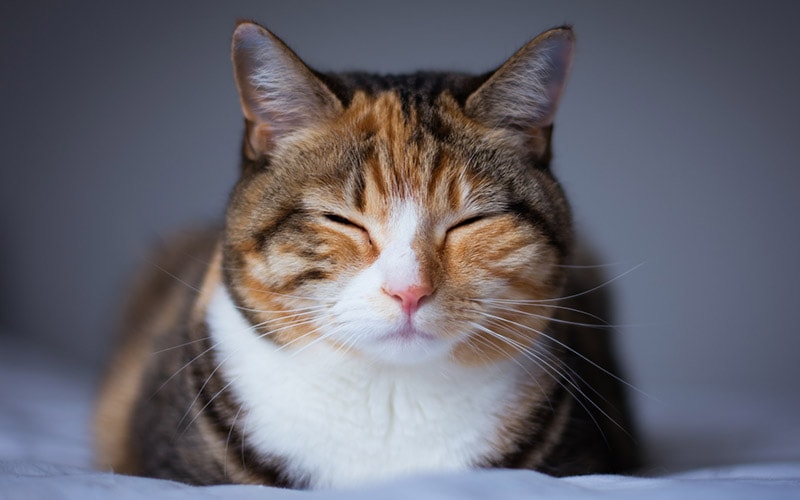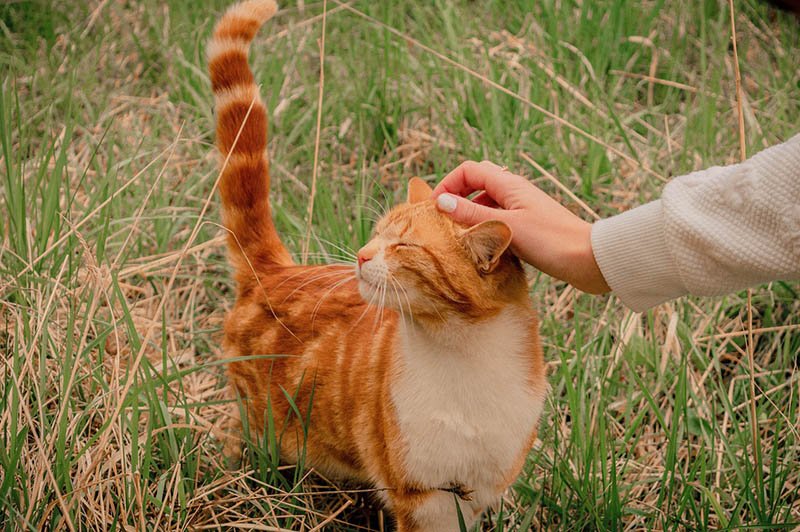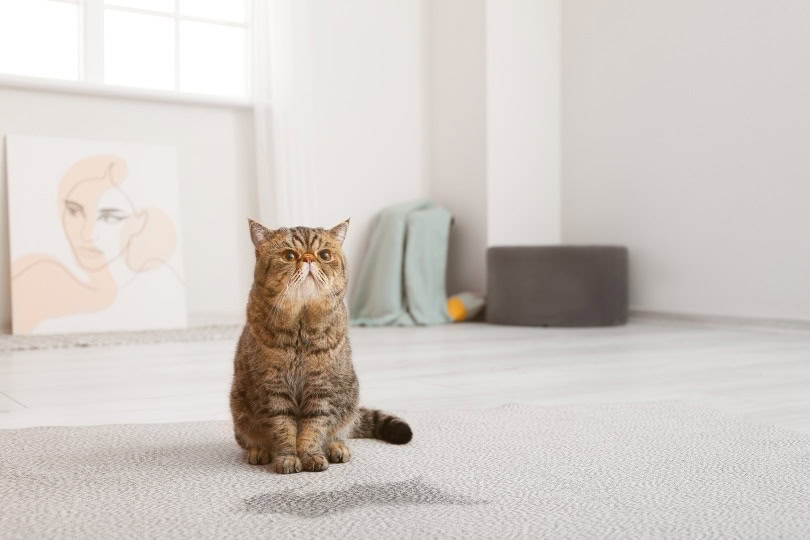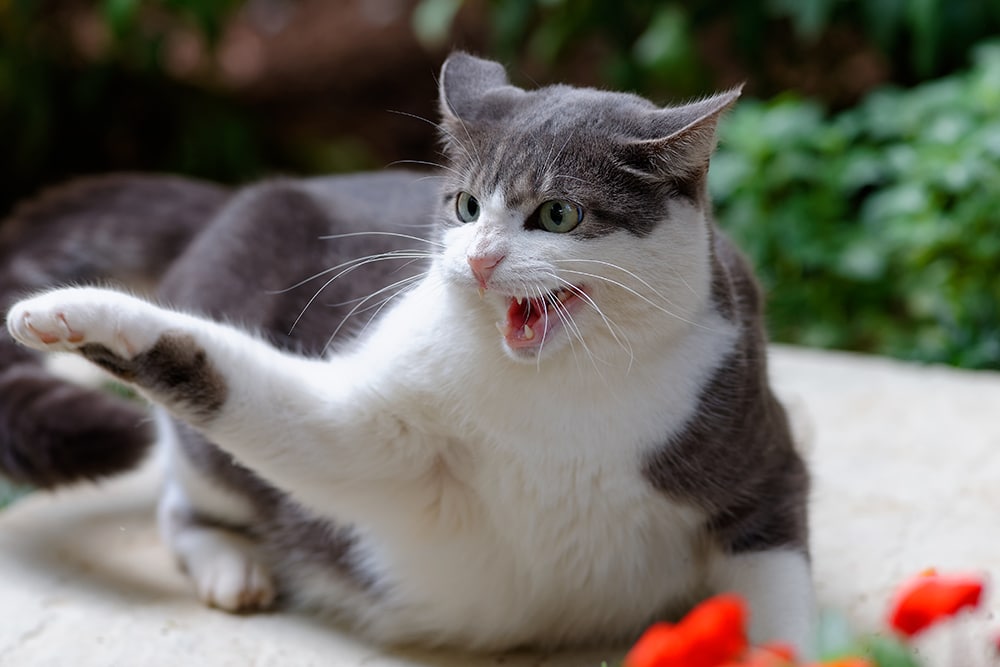VET APPROVED

The information is current and up-to-date in accordance with the latest veterinarian research.
Learn more »Click to Skip Ahead
The sound of a cat purring is so relaxing to humans that you can even find it as an option in some white noise apps or machines. It might put you to sleep, but should you worry if your cat is purring and snoozing at the same time? It’s normal for cats to purr when they’re about to fall asleep, although the reason why they’re doing it may sometimes be a cause for concern.
In this article, we’ll talk about how cats purr and why they may purr while sleeping. We’ll also discuss when you should worry about your cat purring—sleeping or awake.

How and Why Cats Purr
The process by which cats purr is still a bit of a mystery. Scientists believe the movement of air most likely produces the noise through the cat’s vocal co rds and newly discovered fat tissue pads.1 However, it seems the sound is produced without any muscles contracting and without the brain participating, making it a passive action that starts after the brain provides the initial signal to purr.2
Cats may purr when they are content but also when they are stressed or anxious. Purring can also indicate that a cat is sick or in pain.
Why Cats Purr When They Sleep
Purring is thought to serve several purposes, whether the cat is awake or asleep. It’s primarily a way for the cat to communicate emotions. Most owners assume their cat purring is a sign of happiness and contentment, and in many cases, that’s correct.
Cats can dream just like we do, and purring while they’re about to fall asleep may indicate that your kitty is relaxed and preparing for a happy dream. Sleeping cats may also purr because they’re feeling content or as a way to bond with housemates.
Bad dreams can also lead to your cat purring as a way to calm down and relieve stress. Another fascinating theory as to why cats purr in their sleep springs from the potential healing elements of this sound. Based on research, cats purr at a sound frequency known to promote bone and tissue healing. Sound therapy is used in human medicine for just these purposes.
Cats may purr while snoozing as a way of physically self-healing and soothing. Our kitties spend most of the day sleeping anyway, so why not use that time for some tissue repair?
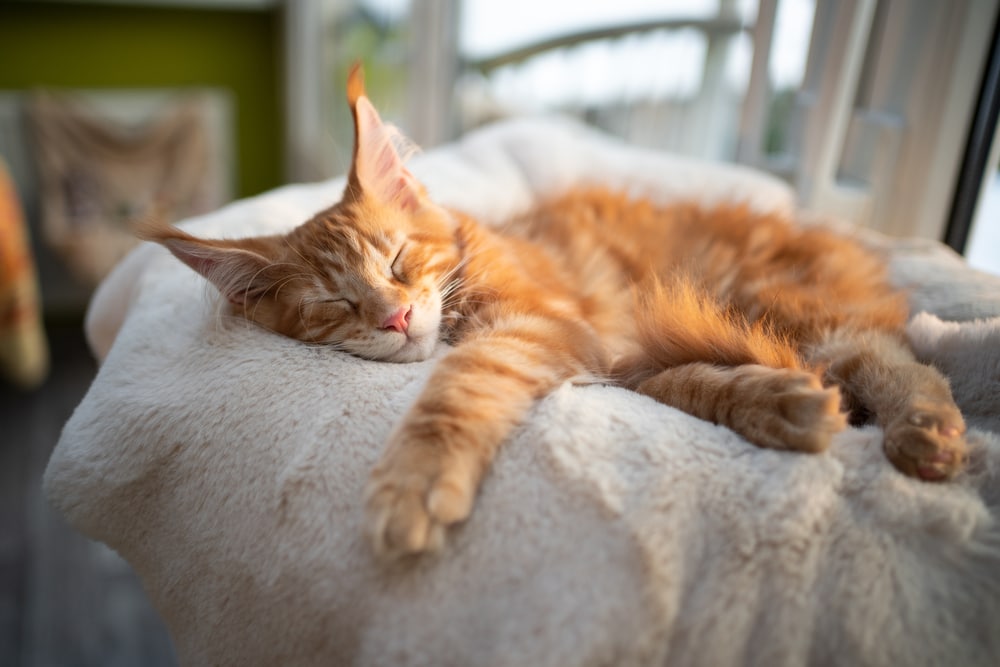
When to Worry About Your Cat Purring While Snoozing
As we mentioned, cats may purr because they’re sick or in pain, including while they’re getting ready to rest and sleep. If this is the case, you’ll most likely notice other concerning signs, such as:
- Loss of appetite
- Limping
- Reluctance to jump on furniture
- Vomiting or diarrhea
- Lethargy
- Weight loss
Purring by itself isn’t an indication that you should be worried, but if you notice it happening frequently and accompanied by other signs, it’s time to take your kitty to the vet for an exam.
Some cats, especially flat-faced or overweight felines, may snore while they’re sleeping, which sounds very similar to purring. Snoring is usually normal but could indicate a problem if you notice other signs, including:
- Sneezing
- Coughing
- Wheezing
- Eye or nose discharge
- Difficulty breathing


Conclusion
As we learned, it’s normal for cats to purr when they’re getting ready to sleep, and they often do so for the same reasons as conscious kitties. Purring can indicate many emotions, both good and bad, as well as physical discomfort. Because cats are so good at hiding pain and sickness, we must be extra diligent to pay attention to even subtle signs that something is wrong.
Purring just before sleep can be one of those signs, but it’s usually not the only one. In many cases, your cat really is purring when they snooze because they’re happy and relaxed. Enjoy the purr because it just might be helping you relax too!
Featured Image Credit: Jack Brind, Unsplash
